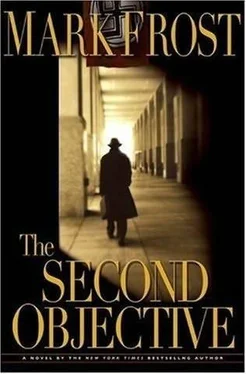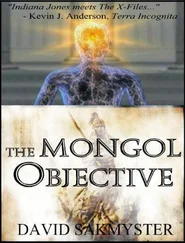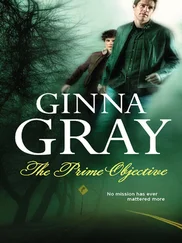Spa, Belgium
DECEMBER 15, 2:00 A.M.
Shortly after Earl Grannit and Ole Carlson arrested Captain John Stringer and his squadron of thieves near the Clermont station, two platoons of MPs raided the 724th’s barracks at Liège and dropped a net over the rest of C Company. MPs herded the suspects into the ballroom of the Hotel Britannique. Set on top of a ridgeline to the north of the Losheim Gap, this marshy plateau around Spa had been uninhabitable until the Romans discovered natural thermal baths percolating up from under the barren sulfuric soil. Over the centuries, as the city of Spa grew to accommodate the well-heeled travelers who came to bask in those beneficial waters, the name became the generic term for all such pleasure-seeking temples. Since early October, Spa’s ornate nineteenth-century resorts had all been commandeered by First Army.
When he arrived at the hotel, Grannit was pleased to see over ninety anxious GIs cooling their heels in the ballroom. The two officers, and three others who’d been hauled in from the barracks, including the battalion commander, had been confined to private rooms upstairs. Grannit and Carlson filled out their paperwork in the hotel’s ornate lobby, smoked cigarettes, and ordered coffee and sandwiches from the kitchen, while they waited for their superiors and counterparts in Army Intelligence to arrive.
“What the heck is this, Spam?” asked Carlson, scrutinizing the contents of his sandwich.
“Pâté,” said Grannit.
Carlson kept staring at it. “Sure looks like Spam.”
“I’m pretty sure they use some of the same parts.”
“Of what?”
“Of whatever goes into Spam. Pig, cow,” said Grannit, taking another big bite.
Eyeing the meat spread suspiciously, Ole took an exploratory sniff.
“It’s not going to bite back, Ole.”
“Smells iffy,” said Carlson.
“You eat Spam, don’t you?”
“Sure. Spam’s great. Breakfast, lunch, and dinner. Fourteen different ways.”
“Trust me on this,” said Grannit. “Whatever parts of those pigs or cows that’s in Spam? What’s in here is from higher up.”
Ole put the sandwich back together, took a small, cautious bite, and rolled it around in his mouth for a while.
“You’re right, Earl,” said Carlson. “That is a whole lot tastier than Spam.”
They’d only been partnered a few weeks. Carlson had been an insurance investigator and volunteer fireman back home in Sioux Falls. Grannit liked how that prepared him for both the quick, unpredictable action and the crushingly dull aftermath of police work. Ole had gone through training as an MP before being transferred to CID, where he specialized in forgery and document work, the area of insurance fraud that he’d trained in. Ole was religious, always went to chapel on Sundays, and said his prayers but never threw it at you. He liked Ole for his flat, halting Midwestern voice, too, his blond brush cut on a head like a shot put, and his straight-ahead nature.
“Man, I like this French coffee,” said Carlson. “Got some hair on it. Makes you want to stand up and say hello.”
“That’s Belgian coffee,” said Grannit.
Ole just nodded. He watched two uniformed MPs lead another group of GI suspects through the lobby. “You gonna handle interrogating these boys?”
“Many as they’ll let me,” said Grannit.
“That the kind of thing you do back in New York, Earl?”
“That’s right, Ole.”
“Thieves and murderers and rapists-”
“We didn’t turn anybody away.”
“Man oh man oh man. Life in the big city.” Ole pondered for a moment. “Could I watch you interrogating these fellas?”
“That’s not up to me,” said Grannit.
“I figure I could pick up a lot from that. About detective work and what have you.”
“Nothing personal, okay? This ain’t night school. Just keep your eyes open and don’t pass up an opportunity to shut the hell up. What you do with it after is your business.”
“Sure, okay,” said Carlson. “I can tell you’re mad, though. Makes me mad, too, these railroad bums. Thinking about what they did.”
“Don’t lose any sleep over it.”
Grannit finished his sandwich, stretched out on the sofa, pulled his hat down over his eyes, and folded his arms. Carlson had watched him do this before, grabbing short bursts of shut-eye, and figured it for an old detective’s trick, catnapping when he got the chance. Ole decided to give it a try and squirmed to get comfortable in the big overstuffed chair. Grannit cocked open an eye and watched Ole decide whether or not he should park his muddy boots on a heavy gilded table. Then he got up, spread out an edition of Stars and Stripes on the table, sat back down, and eased one boot down and then the other on the folded page.
Grannit pulled his hat back down. There was the occasional shit about Ole that drove him nuts, too.
A young captain and lieutenant from Army Intelligence showed up at five in the morning, throwing their weight around, while their adjutants ran around for coffee and donuts. When they started bitching about how hard they were going to have to work to keep the whole stinking Railway Battalion story out of the New York Times , Grannit turned over a table in their laps.
“We just broke the biggest criminal case of the war trying to solve a front-line morale problem, so I don’t give a fuck it’s a public relations headache for some rear-echelon horse’s ass. You got that?”
Grannit’s superiors from CID showed up in time to hear that and let it drop that Lieutenant Grannit had fifteen years in NYPD robbery-homicide. The hotshots from Intelligence seemed eager to tidy up their paperwork and hit the road.
At daybreak, over breakfast, the CID prosecutors laid out what they hoped to hear from these suspects before their courts-martial. Grannit liked what he heard about due process in a military tribunal: They required less burden of proof during war time, which meant no lawyering bullshit from defendants’ counsel. But Supreme Command wanted this mess scooped up and thrown out with the trash, and no ink spilled in the press with the war headed into the final innings. Home-front spirits were riding high, and nobody wanted to spoil Mom and Pop’s Sunday dinner dwelling on the sordid details about these greedy, thieving pricks.
“How we going to do that, Earl?” they asked.
“You need confessions,” said Grannit.
“What we’re hearing so far,” said one of the senior MPs, “is that none of ’em wants to cooperate.”
None of them had a solution. Grannit held back, reminding himself that CID was a brand-new unit, less than four months in the field, organized to handle major felony crimes committed by GIs against fellow soldiers or civilians. With such limited time to get on its feet, they’d barely had a chance to print manuals, let alone train their personnel. To keep peace at home when the war broke out, Uncle Sam handed every working American cop a draft exemption. Grannit had tried to enlist during the first weeks of the war, but NYPD brass said he was too valuable to let go. Twenty-seven months and one pricey midtown lawyer later, he had argued his way off the force and into the army without forfeiting his pension. The next day they shipped him to the new Criminal Investigation Division training base in Michigan.
His superiors had never worked a day in civilian law enforcement. They were career soldiers in the Military Police, straight as their standard-issue neckties. You wanted traffic control in a crowded staging area, a fight in a dockside bar suppressed, or chain of custody maintained on prisoners of war? That played to the MPs’ strengths-logistics, discipline, and security; all beat-cop talents-but they were ill equipped for felony detective work. In less than a week the men trying to run CID realized Grannit knew more about organizing a criminal investigation force than they did. The railroad case had taken six weeks to crack, and Grannit had quarterbacked the effort. Now they were waiting for him to send in the next play.
Читать дальше












